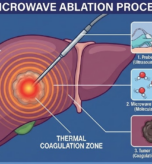Hope for Infertility: Fallopian Tube Recanalisation

Introduction
Infertility due to blocked fallopian tubes is a common challenge for many women. Fallopian tube recanalisation, a minimally invasive treatment, is widely regarded as one of the best methods for tube blockage. It restores tubal function and improves the chances of pregnancy after the procedure, often allowing for natural conception following infertility treatment.
Finding Hope When Infertility Feels Overwhelming
Struggling with infertility can feel like an emotional rollercoaster—filled with frustration, confusion, and endless questions. Many women are told that blocked fallopian tubes mean expensive surgery or immediate IVF. But there’s another path forward.
Fallopian Tube Recanalisation (FTR) is a less invasive, same-day procedure that can restore natural fertility without the need for major surgery. Under the guidance of Dr. Vrishit Saraswat, a nationally recognised Interventional Radiologist trained at Medanta, women can find renewed hope and compassionate care.
👉 Learn more about infertility treatments with Dr. Saraswat
What is Fallopian Tube Recanalisation (FTR)?
Fallopian Tube Recanalisation is a procedure that reopens blocked fallopian tubes, which are essential for egg and sperm to meet. Many women develop tubal blockages due to infection, inflammation, or previous pelvic surgery.
Instead of a large abdominal incision, FTR is performed through the natural opening of the uterus (cervix). Using fluoroscopic imaging (live X-rays), a fine catheter is guided into the fallopian tube. A tiny wire gently clears the blockage, restoring the tube’s function.
This precise, image-guided approach means:
- No stitches
- Minimal discomfort
- Same-day discharge
Know more about Fallopian Tubes Recanalisation
Who Needs This Procedure?
FTR is recommended for women diagnosed with proximal tubal obstruction (blockages near the uterine end of the fallopian tube). It is particularly helpful if:
- You’ve been trying to conceive for over a year
- Your HSG (hysterosalpingography) shows blocked tubes
- You wish to avoid major surgery or IVF as the first option
Unlike surgical tuboplasty, FTR is minimally invasive and does not require general anaesthesia. It is often the first-line treatment before moving on to costlier fertility procedures.
👉 Check if FTR is right for you
What Are the Benefits?
Fallopian Tube Recanalisation offers several advantages:
- Shorter recovery time – resume daily routine within 24–48 hours
- High success rate – 70–90% technical success with reported pregnancies in many women afterwards
- Same-day procedure – most women go home a few hours later
- Minimally invasive – no abdominal cuts or scars
- Preserves fertility naturally – helps many women conceive without moving directly to IVF
This makes FTR a gentler, cost-effective, and hopeful solution for couples struggling with infertility.
Why Choose Dr. Vrishit Saraswat?
When it comes to delicate fertility procedures, experience matters. Dr. Vrishit Saraswat is a highly skilled Interventional Radiologist with training from Medanta – The Medicity, one of India’s most respected hospitals.
- Nationally recognised expertise in minimally invasive fertility and vascular procedures
- Personalised care tailored to each woman’s unique fertility journey
- Virtual consultations for convenience and accessibility
- Compassionate approach that values emotional support alongside medical treatment
With his dedication to combining cutting-edge technology with patient-centred care, Dr. Saraswat ensures women feel supported, informed, and hopeful throughout their treatment.
Conclusion
Infertility can feel overwhelming, but modern medicine provides gentle solutions that restore hope. Fallopian Tube Recanalisation is one such breakthrough—safe, effective, and minimally invasive. If blocked tubes are standing in your way to motherhood, this procedure could help open the door to natural conception.
With the expertise of Dr. Vrishit Saraswat, you don’t have to face infertility alone. A caring, advanced, and less painful alternative is within reach.
👉Check our services https://drvrishitsaraswat.com/our-services/
FAQ
Q1- How successful is fallopian tube recanalisation?
Fallopian Tube Recanalisation (FTR) has a technical success rate of 70–90%, meaning the blocked tubes can be opened in most women. Studies show that many women conceive naturally within 6–12 months after the procedure.
Q2. How much does fallopian tube recanalisation cost?
The cost of Fallopian Tube Recanalisation varies by country and hospital. In India, it typically ranges from ₹30,000–₹40,000. Factors like hospital facilities, imaging, and whether one or both tubes are treated can affect the price.
Q3. What is the recovery time for fallopian tube recanalisation?
Recovery is usually very quick since the procedure is minimally invasive. Most women go home the same day, resume light activities within 24–48 hours, and return fully to normal life within a few days.
Q4. Can I get pregnant after recanalisation?
Yes, many women conceive naturally after FTR. Studies show that 30–60% of women achieve pregnancy within a year, depending on age, overall fertility health, and other factors.
Q5. What are the risks of fallopian tube recanalisation?
Risks are rare but may include pelvic infection, re-blockage of the tube, or a small risk of ectopic pregnancy. Overall, the procedure is considered safe when performed by an experienced interventional radiologist.






